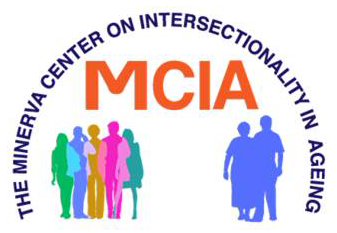Aims
Minerva Center on Intersectionality in Aging (MCIA) is developing comprehensive cutting-edge knowledge on three levels:
- By examining intersectionality and multiple marginalization processes in old age
- By developing knowledge related to overcoming inequality and other social barriers
- By developing models of social, psychological and political intervention, ranging from education and social activism involving the participation of the marginalized groups themselves.
These themes are addressed along several dimensions:
- The physical and mental health dimension, including the impact of health on quality of life in old age
- The socio-cultural dimension, including prejudice, stigma and societal attitudes
- The legal dimension, concerning the needs, legal rights and human rights of older people
- The individual-psychological dimension, relating to closure, the disclosing of secrets, self-value and value within the family,
which enable respectful closure of the life course - The lifelong effect of vulnerability and resilience
An interdisciplinary approach allows us to address the complexities involved in the various dimensions of marginalization such as health-related status, co-morbidity,
and societal reactions such as legal arrangements. The composite of these dimensions enables the construction of a comprehensive approach to marginality on individual, family and societal levels.
Such an approach provides us with the ability to understand social marginalization and the multiple ways it is internalized to shape the experience of the population groups mentioned above.
This Center contributes to increased awareness, develop knowledge and produce intervention models leading to social change.
A mixed method, using a combined qualitative and quantitative approach, is implemented to depict the subjective experiences of the populations under investigation
and provide a better understanding of their experiences.
In addition, a statistical analysis is conducted, which allows for generalization and an epidemiological examination of the phenomena under scrutiny.
The Center works on developing interdisciplinary research topics from the life experiences of the above-mentioned populations, with a focus on intersectionality, suggesting two directions: the development of empirical and theoretical knowledge; and practical implementation. Given the need to examine cross-cultural similarities
and differences of the acquired knowledge, and given the relevance of the issues raised for other cultures,
a cross-cultural comparative component is added by developing collaborations with German colleagues.


